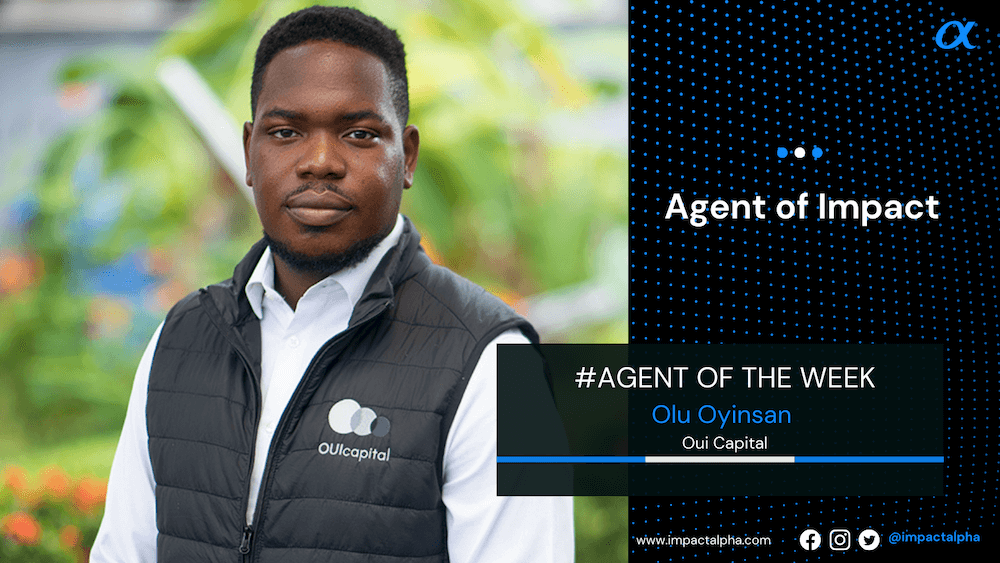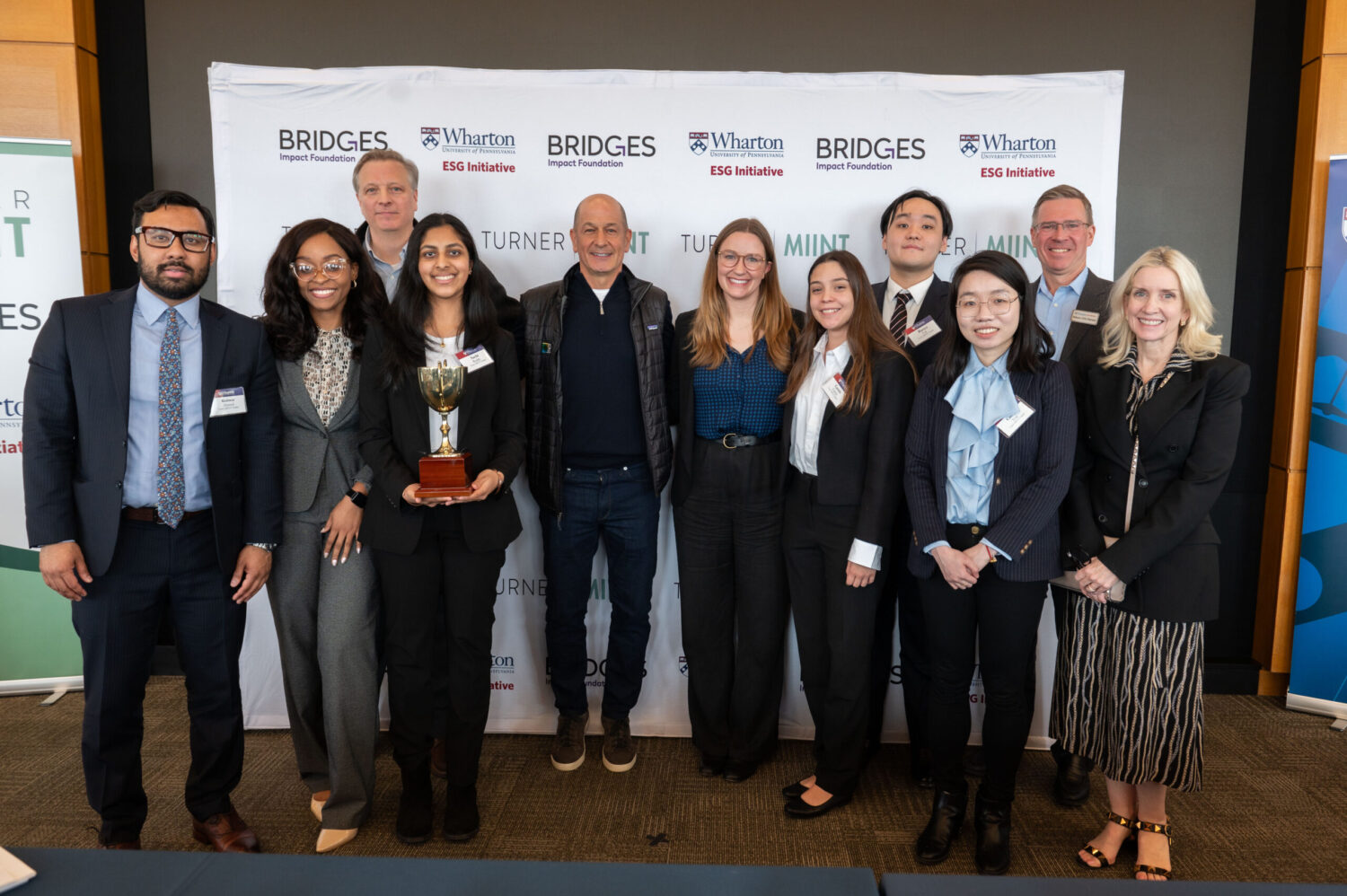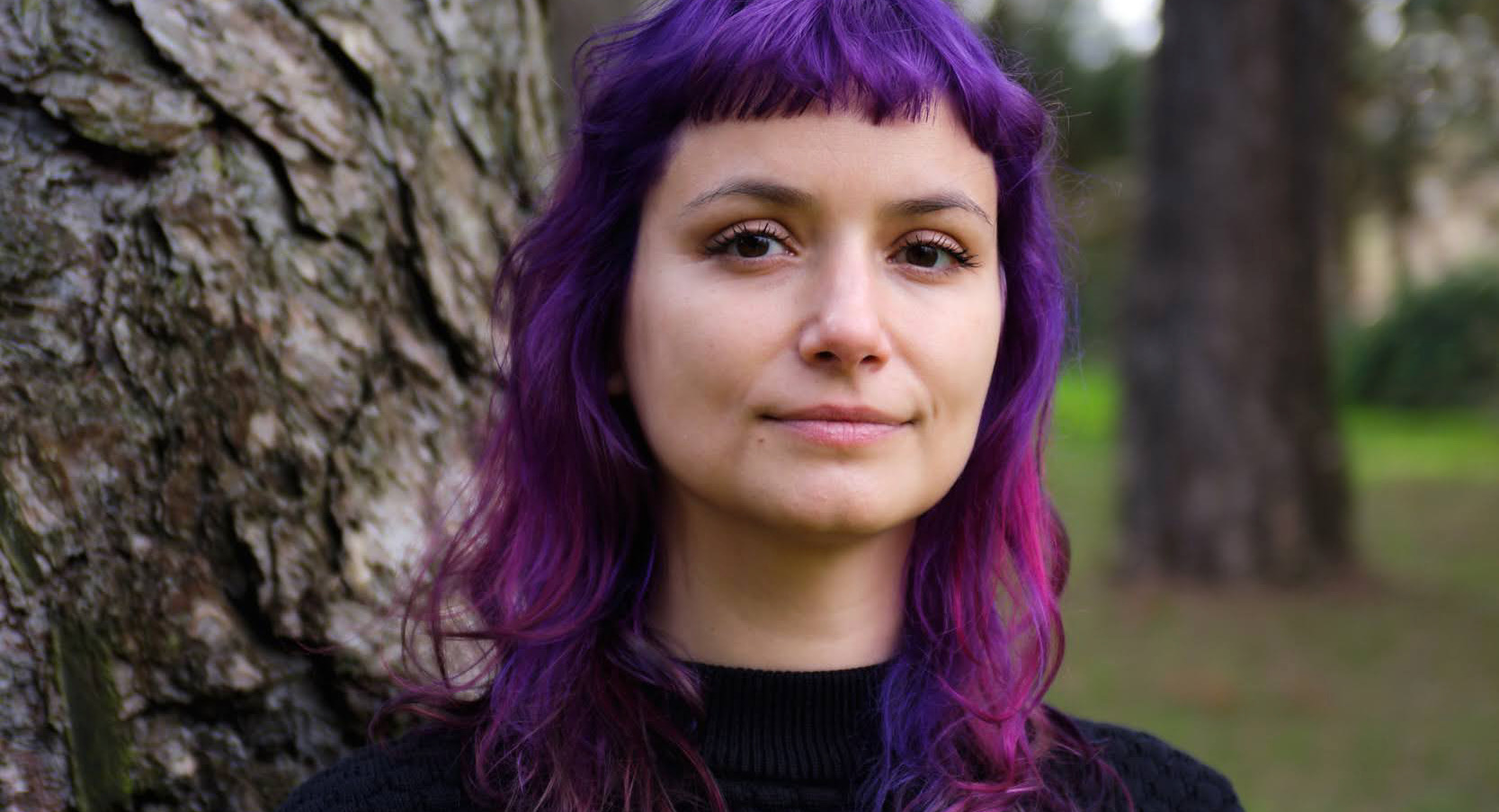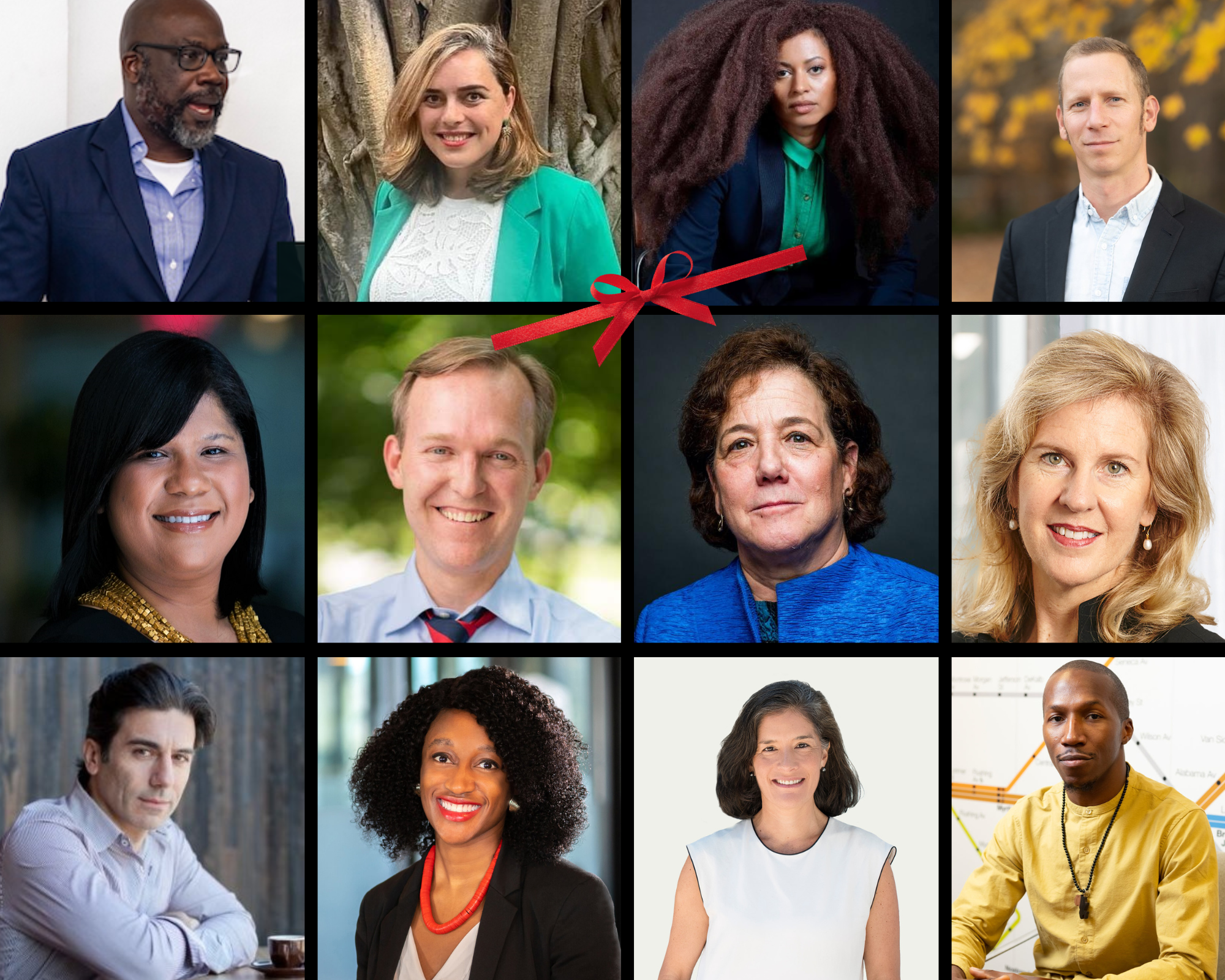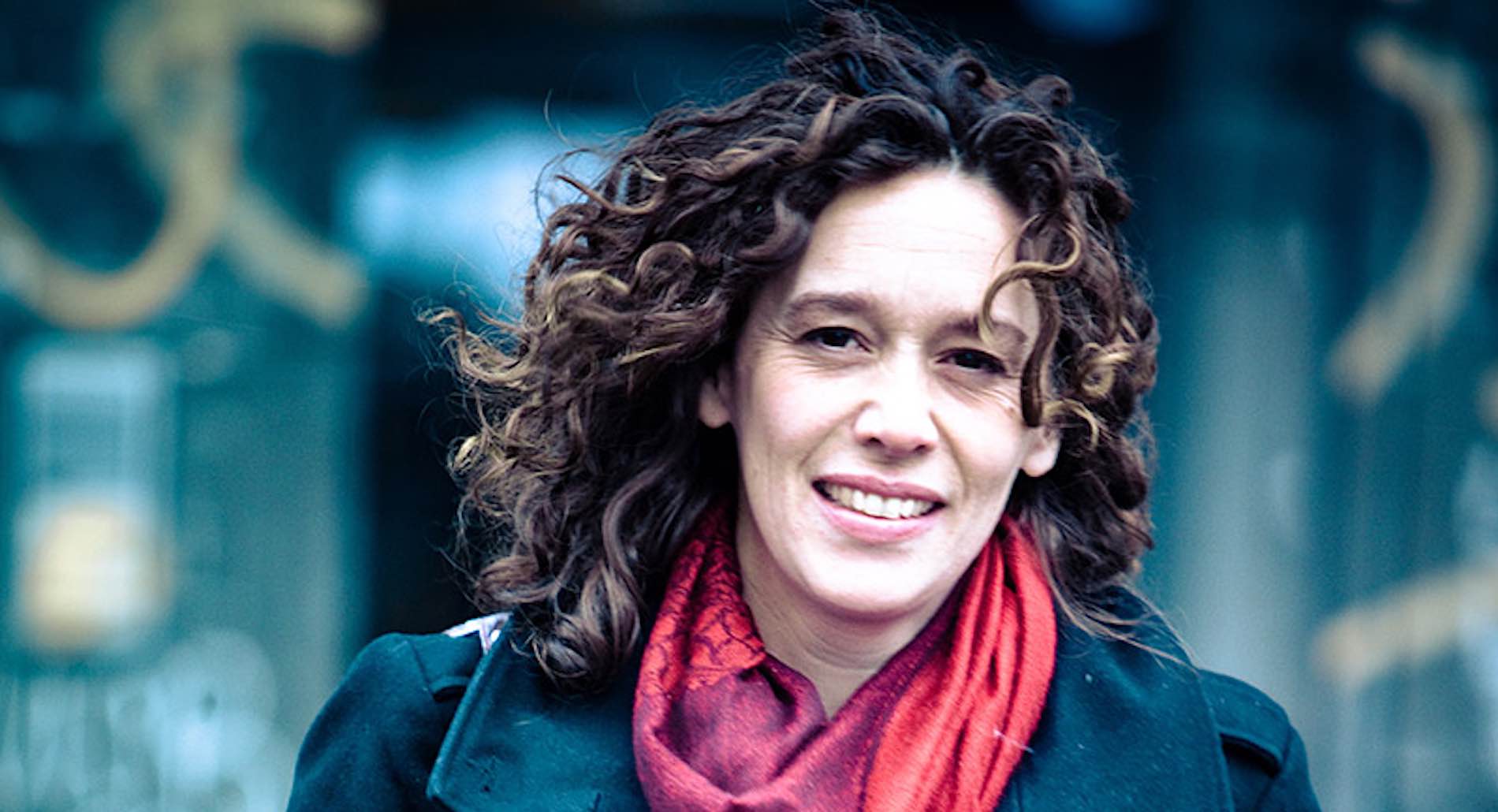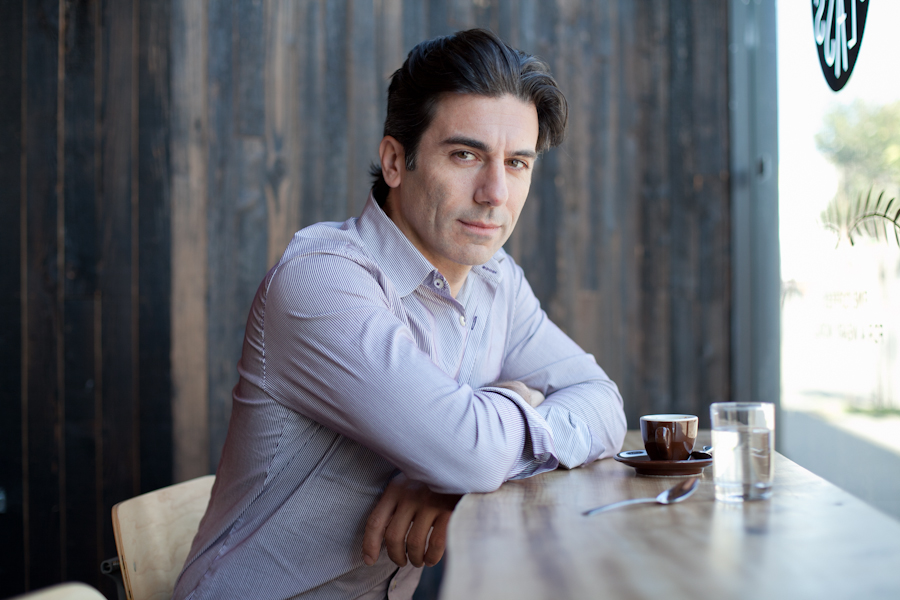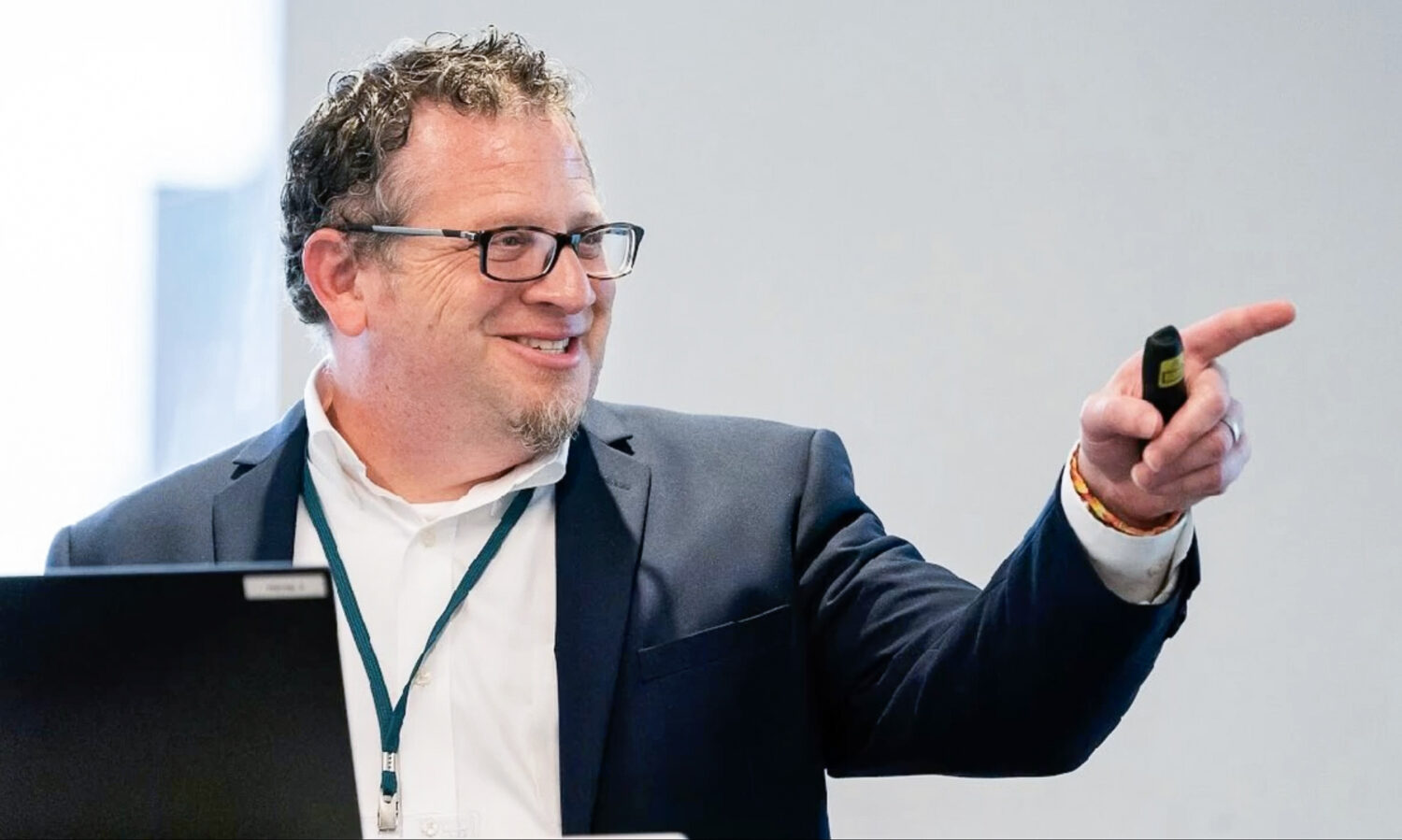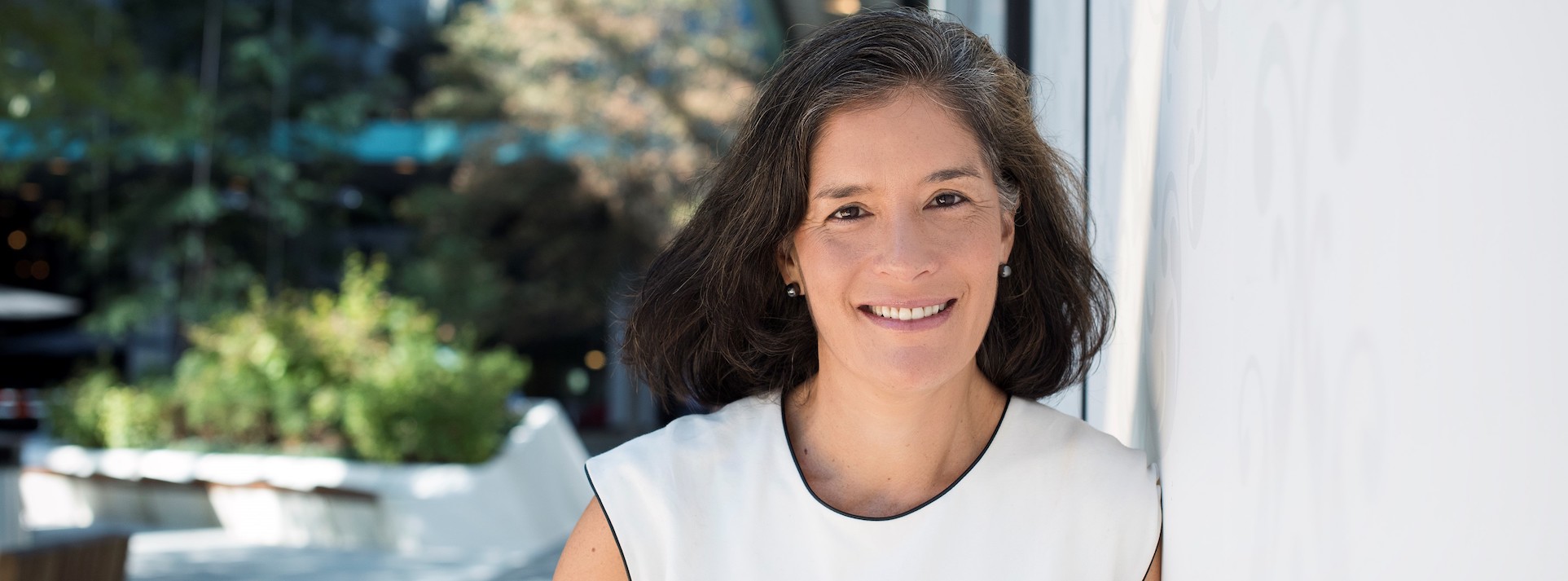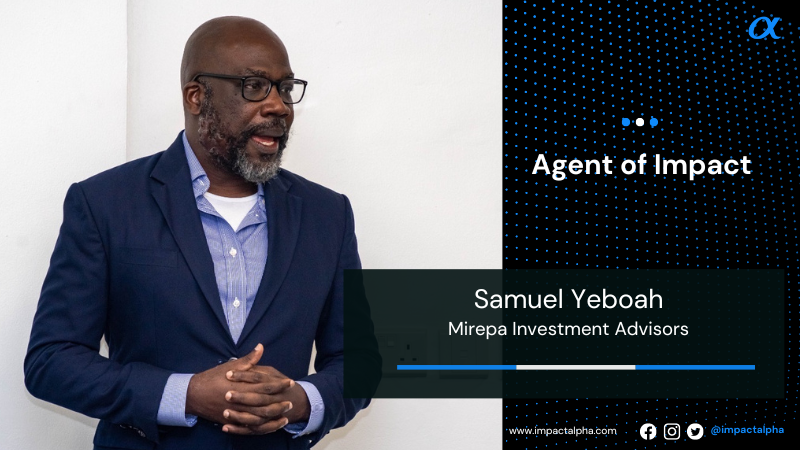ImpactAlpha, May 27 – Five years ago, Olu Oyinsan felt an urgent pull back to his native Nigeria while working in the early-stage practice of Silicon Valley Bank in Boston.
At the bank, he had been tracking venture capital deals in Africa and was struck by the acceleration of startups launching and raising capital.
“I felt like we were getting to an inflection point for emerging markets, especially in Africa, and that anyone who cared about emerging markets needed to get involved,” Oyinsan tells ImpactAlpha.
Oyinsan launched Oui Capital in Lagos with a specific mission of investing in early-stage companies that “get to the root of poverty” in Africa. The fund screens for companies solving problems that affect the majority of Africans and help them earn, save and invest their money.
“We direct capital to early-stage companies trying to create wealth,” he says. “If you’re not building for the mass market, you’re probably not going to be around very long or grow very much.”
Since raising its $5 million “proof of concept” fund in 2020, Oui Capital has invested in nearly 20 companies, including the enterprise software startup Duplo, mobility venture AwaBike, and fintech venture Herconomy, which focuses on women.
TeamApt, another portfolio company, enables anyone with a mobile phone and point-of-sales machine to become a local bank branch in their community. The company has created more than 160,000 jobs while helping low-income and remote communities get access to digital financial services.
For every $1 million Oui has invested, its portfolio has secured $40 million in co-investment and follow-on capital, Oyinsan says.
Now, with its first fund almost fully deployed, Oui is gearing up to raise a second, $30 million fund. Oui’s thesis remains the same, but times have changed. There’s a lot more early-stage capital floating around in Africa: startups on the continent raised roughly $5 billion last year.
And there are a lot more companies now addressing “upmarket” customers or issues. Oyinsan questions whether such businesses can have either longevity or impact in a changing economic environment.
As recently as several years ago, “Investing in an African fund with at least a negative screen was an impact investment,” Oyinsan says. “That’s probably not sufficient today. So we just keep tightening the screw on what we consider an impactful company.”
Oyinsan spoke with ImpactAlpha about Oui’s mission and vision for venture investing as an African fund manager.
ImpactAlpha: 2021 and the first half of 2022 have seen a lot of venture capital coming into Africa—most of it destined for one of your top sectors: fintech. How have things changed since you launched Oui?
Oyinsan: Oui Capital is a 2019 vintage fund. At the time, there were a number of funds on the African continent trying to allocate capital to early-stage companies to create wealth. But as much as you need capital, you need a lot of skill to get results, and there was not a lot of knowledge on the ground around building companies.
One thing we did differently was create a mentors pool – we named our first fund Mentors Fund I – of professionals from very different verticals, skill sets and expertise to mentor the companies we invest in. And we tied all the pieces together by getting the mentors to also invest in the fund.
ImpactAlpha: How did “getting to the root of poverty” become an investment thesis?
The thesis was really about how to empower people enough to generate their own wealth. We target anything that is democratizing the tools that can help people help themselves. Eighty percent of our portfolio today is software-as-a-service for the delivery of digital goods, logistics and mobility for the delivery of physical goods, and financial technology to make transactions happen.
Apart from making that impact, we also believe that that’s where the alpha is.
ImpactAlpha: There’s not always a direct link between tools and how they impact people directly, so how do you track the impact of your fund?
One thing we track is diversity and gender. Last year, 38% of our portfolio had at least one female founder, compared to the average VC portfolio in Africa, which is 17%. We want to get ours to at least 50%.
Another thing we look at is [how our portfolio companies] are creating opportunities for low-income people. One of the top performers in our portfolio is a company called TeamApt, which is providing banking-as-a-service. Their technology enables any small merchant or even just someone who is unemployed to become a bank.
They issue handheld devices that allow individuals and merchants to take cash from people and charge them a small fee for putting it in a [digital] bank account. TeamApt is penetrating places where banks haven’t gone because of location security or lack of resources or just because it doesn’t make business sense to set up a branch. So they’re empowering people who were financially excluded before and creating employment for other people in the value chain.
Today, TeamApt has created 165,000 jobs for low and middle-income people who either turned their tiny business into a bank, or just did that with their energy and a point-of-sale machine. When we invested in 2019, the company had a $12.5 million valuation. Today it’s valued at $850 million.
It shows you can do very well financially while doing good. These are the kinds of companies that we’ve stuck to.
ImpactAlpha: Would you say that most of the venture capital opportunities you’re seeing in Africa are inherently impactful?
We have a number of family offices and foundations in our fund, and what I would tell them is that if you’re investing in a fund in Africa with at least a negative screen, it’s an impact investment – you’re going to reach people and create opportunities that affect the vast majority of Africans. We actually do not identify as an impact fund.
ImpactAlpha: You have a poverty alleviation and wealth creation mission—how do you not identify as an impact fund?
Funds with more assets under management can afford to report on the impact they make. For our fund size, the financial commitment of doing the reporting is almost counter-intuitive. The process of collecting the information has an opportunity cost, especially for the entrepreneurs on the ground trying to do the work.
Companies, especially young companies, are beginning to feel the trickle-down effect of having to do impact reports. It’s becoming an extra factor for them to think about how attractive you are as an investor, because they know that at some point, you’re going to come calling [about impact metrics] when what they really want to do is spend more time in the market. Impact capital almost becomes a burden to them. So whether to brand as an impact fund was one of the big decisions we had to make early on, and it’s something all emerging managers need to think about.
ImpactAlpha: Given how much more money is coming into the African venture market today, do you still feel that a “negative screen” is adequate for what makes an impact investment in Africa?
What was sufficient in 2020 with a negative screen, that’s probably not sufficient today. So we just keep tightening the screw on what we consider an impactful company.
You see companies now building for people who are already financially included, who own smartphones and have multiple bank accounts. Those aren’t for the mass market. In Africa, if you’re not building for the mass market, you probably haven’t gotten it right – you’re probably not going to be around very long or grow very much.
We’re beginning to solve a lot of the problems that we used to have. For example, before it was hard, if I didn’t have cash, to buy tomatoes from a woman selling on the side of the street. Now I can, as long as she has a feature phone – which about 80% of the population does. If you’re a company that’s trying to solve that [payments] problem today, I would have to ask if that’s a problem you really should be spending your time on.
ImpactAlpha: Oui is gearing up to raise its second fund. Just curious: as a first time fund manager, how long did it take you to raise a $5 million fund?
We initially wanted to do a $10 million fund, but then changed our minds. First, we figured out the strategy with a handful of companies to see if it would work. Second, the pandemic was starting to hit and we didn’t want to be in the market for too long, so we decided $5 million was enough for a proof-of-concept. Anyway, many investors who identify as impact investors or [development finance institutions] don’t invest in first time funds.
ImpactAlpha: You have helped crowd in additional capital for the companies in your portfolio, without making concessions on your own returns. What’s your vision as a first-in investor supporting early-stage African startups?
Early-stage funding can actually be pretty catalytic. We’re able to help de-risk a lot of these companies because we can translate what’s going on in Africa to other investors in the global landscape. We hope to lead more pre-seed and seed rounds, because that helps keep a lot of the wealth that these companies are creating in the ecosystem.
One of the first deals I did was invest in [Nigerian payments venture] Paystack. When Paystack was acquired, about 90% of the money went back to the countries where its investors were based.
ImpactAlpha: Because Paystack didn’t have many Africa-based investors?
Right. It would have been great to see a local fund lead Paystack’s seed round or Series A round because that would have had a catalytic effect – there would have been a lot of money coming back into the local ecosystem.
The CEO of TeamApt is becoming an investor in our second fund. So you see how wealth that’s been created stays in the ecosystem and creates more of these successful companies that touch more people.

